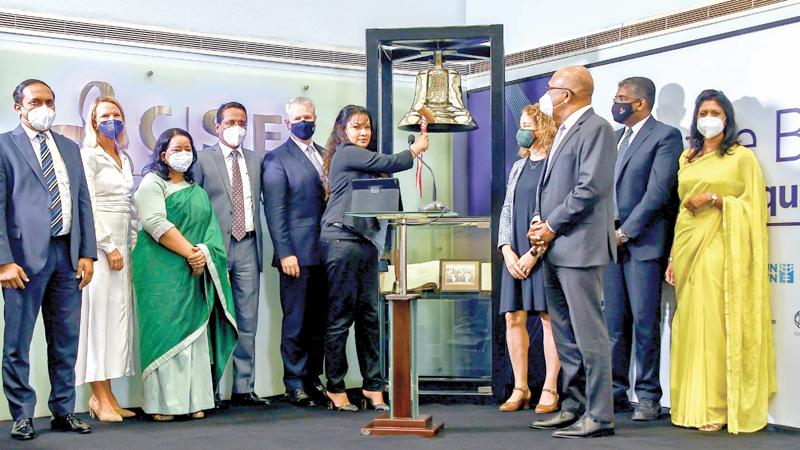
For the seventh consecutive year, IFC partnered with the Colombo Stock Exchange (CSE) to ‘Ring the Bell for Gender Equality’.
IFC’s commitment to the initiative is part of its strong focus on gender equality, which includes leveraging relationships with financial institutions to expand access to finance for female entrepreneurs and increase the number of women in leadership roles.
“The Colombo Stock Exchange (CSE) joined this initiative in 2016 as one of the initial stock exchanges, and we believe this is the platform to convene business leaders, investors, and other key parties at the national level to highlight the growing business and economic case for gender equality,” said Chairman, CSE, Dumith Fernando.
“We at the CSE are encouraged to note that more of our listed companies have welcomed the participation of strong, independent women on their boards. This is evident by a steady increase over the years in the number of listed companies with women holding corporate board seats.
“There are 96 new board positions that have been occupied by women since 2018. Even though we see a positive trend, we are still short of the regional markets. So, all of us, as policymakers in our corporates, are vested with the duty to encourage gender equality in our establishments,” he said. In Sri Lanka, the female labour force participation rate remains stagnant at around 35 percent, compared with a steady male participation rate of 74 percent. Similarly, the average female unemployment rate (7 percent) remained more than double that of men (3 percent) between 2011 and 2019.
By improving female labour participation, McKinsey Global Institute estimates, Sri Lanka can potentially add $20 billion a year to its gross domestic product (GDP) by 2025 — increasing economic growth by about 14 percent.
Accelerating the pace of gender parity could generate financial returns in the private sector, leading to significant economic, environmental, social, and governance gains in emerging markets. Country Manager, IFC, Sri Lanka and the Maldives, Lisa Kaestner said, “Pushing for gender equality today is needed for a sustainable tomorrow. Research – including IFC’s – continues to demonstrate that gender diversity in the boardroom boosts financial performance, promotes better decision-making processes and improved environment, social and governance (ESG) practices.
“We need more women business leaders for an inclusive and resilient recovery in the country. I hope that companies and policy makers continue to commit toward accelerating the progress made to date,” she said.
